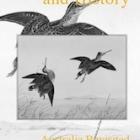Gowers, Richard J. “Selling the ‘Untold Wealth’ in the Seas: A Social and Cultural History of the South-east Australian Shelf Trawling Industry, 1915–1961.” Environment and History 14, no. 2, “Australia Revisited” special issue (May, 2008): 265–87. doi:10.3197/096734008X303764. Between 1915 and 1961 a state-run trawling industry operated on the South-east Australian shelf targeting tiger flathead (Neoplatycephalus richardsoni) as its principal species. When the last steam-trawlers left in 1961, stocks in flathead had effectively collapsed. The familiar experience of overfishing, however, was due as much to social and cultural pressures as it was to increasing numbers of fishers targeting a delicate species with ever improving technologies. Flathead stocks declined as a direct result of a government initiative, designed to induce New South Wales residents to consume the Shelf’s neglected wealth. In the intersection between the consuming masses, trawling nets, and government-directed marketing campaigns, tiger flathead became a new ‘cheap food’ and it could not withstand those forces. This article analyses the emergence of the Shelf fishery in 1915 and its evolution through the twentieth century. The history it details reveals the impact of the culture of consumerism on fishing ecosystems and the process through which a species declined from abundant to exhausted. All rights reserved. © 2008 The White Horse Press
"Selling the 'Untold Wealth' in the Seas: A Social and Cultural History of the South-east Australian Shelf Trawling Industry, 1915–1961"
Gowers, Richard J. | from Multimedia Library Collection:
Environment and History (journal)


